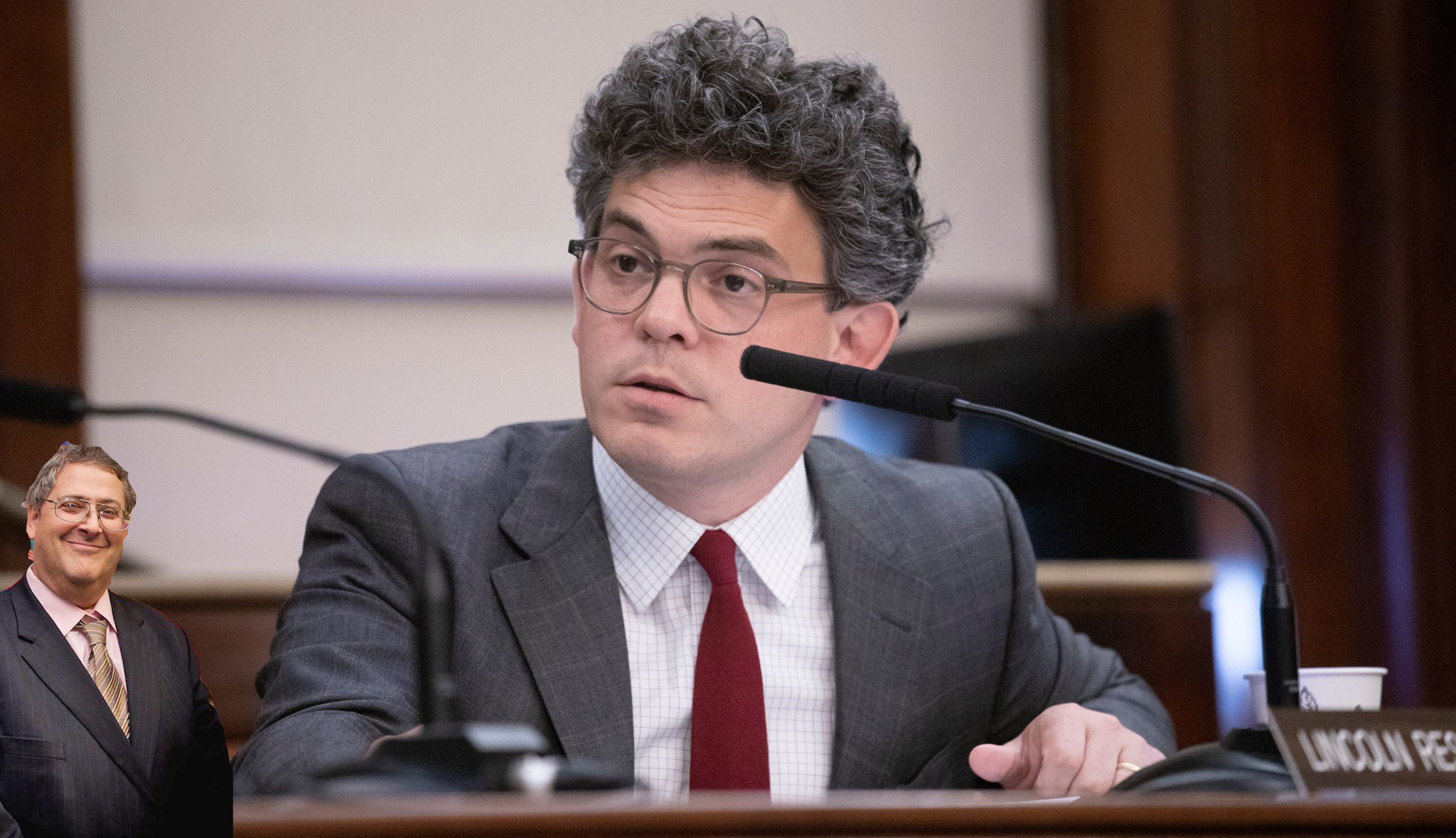They’re putting the pedal to the metal.
The City Council on Wednesday passed a historic bill to speed up the installation of bike lanes across the five boroughs by repealing a notorious, decade-plus-old law that imposed lengthy delays before the city could break ground on such projects — a momentous shift amid what’s expected to be the deadliest year for cyclists since before the millennium, said the bill’s main sponsor.
“No other transportation project in New York City, no bus lane or otherwise, requires this type of extended dead period when you cannot move forward on projects that are supported by our communities,” said Council Member Lincoln Restler (D-Williamsburg) following the Transportation Committee seven-to-five vote to move the legislation to the full Council.
"It’s worth noting that 2023 is on track to be the deadliest year for cyclists in New York in decades. It doesn’t make sense."
The full Council passed the bill by a vote of 32 to 15, with most of the opposition coming from outer-borough reps opposed to bike lanes or, more accurately, reducing the local community board's role in thwarting them.
Great news to end the day: Intro 417-B passed 🎉
— Transportation Alternatives (@TransAlt) December 6, 2023
Thank you to @LincolnRestler and the City Council for passing this much-needed legislation that will eliminate barriers that other transportation projects don’t face. https://t.co/uWlyiDYeXw
The legislation voids an old law that required the Department of Transportation to give the local panels 90 days of notice before installing a bike lane, and then waiting another 45 days after a community board hearing to install the bike lane.
Under Restler's bill, bike lane proposals will move on the same timeline as other street projects that go in front of community boards, allowing the department to install a bike lane just 14 days after notifying the civic panel. Community boards will still have the opportunity to give feedback and request an in-person presentation by DOT.
The administration said back in April that it supported the bill, Intro. 417, which was first introduced by Brooklyn Borough President Antonio Reynoso in 2021. The late-Lew Fidler, a Council member representing swaths of southern Brooklyn, pushed for the original law that slowed down installation on the grounds that bike lanes were so controversial that they should undergo more review.
But times have changed, with New Yorkers now making more than 550,000 bike trips every single day, often on unprotected roads. Manhattan City Council Member Keith Powers said that "2023 is sadly on track to be the deadliest year in decades for cyclists, underscoring the need for a cohesive network of bike lanes across New York City.”
“Unfortunately, current rules mean that bike lanes are often stuck in unnecessary red tape that delays their construction by months or even years. Intro. 417 will significantly streamline the approval process and I am happy to support its passage," he added.
Restler’s bill was first scheduled for a vote last month but was tabled at the eleventh hour as opponents attempted to turn supporters against the bill.
One change to come out of the delay was a specific the notification requirement for bike lanes “of any length” in the amended version. The first iteration would have exempted bile lanes less than 1,000 feet or four blocks, as well as unprotected bike lanes, from requiring any notice at all.
Bill sponsor Restler still views it as a win.
“There had been a previous draft that had allowed for shorter bike lanes to move forward without that notice, and in the end, this was a modification we made that helped the bill get it over the finish line,” he said.
“I'm happy that we’re moving the bill forward. I think in totality this was a good piece of legislation and will help us build and install more bike lanes.”
And a spokesperson for DOT said the agency will review how the bill impacts operations, but that "bike lanes are life-saving infrastructure that improve safety for everyone—including pedestrians and drivers."






